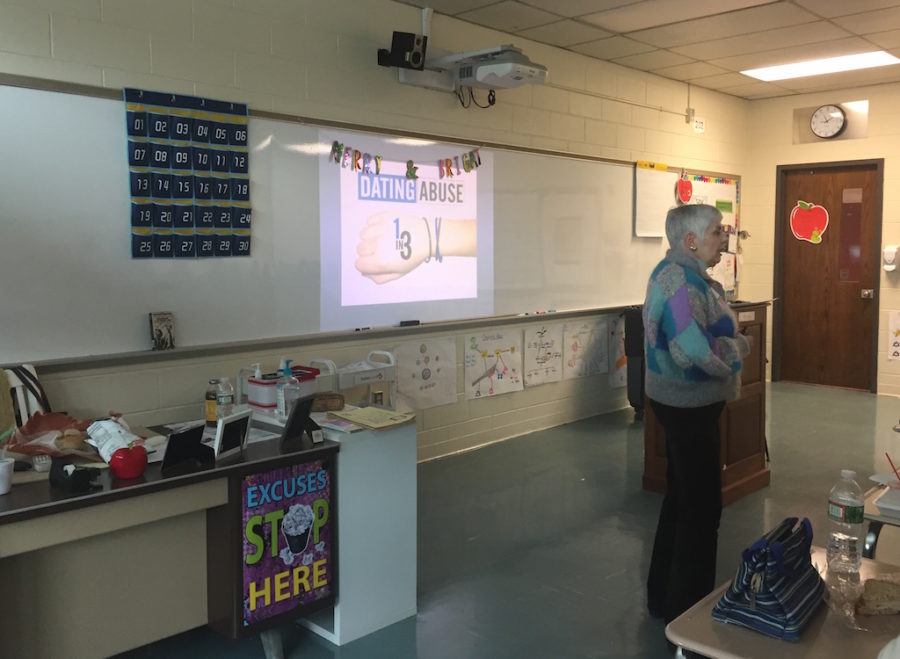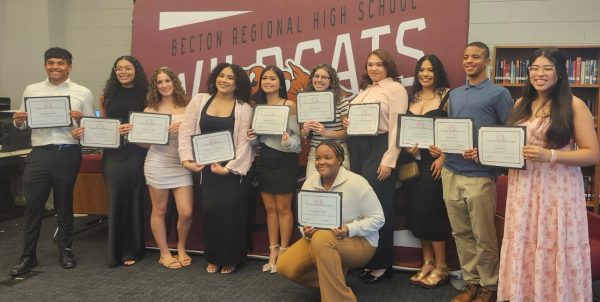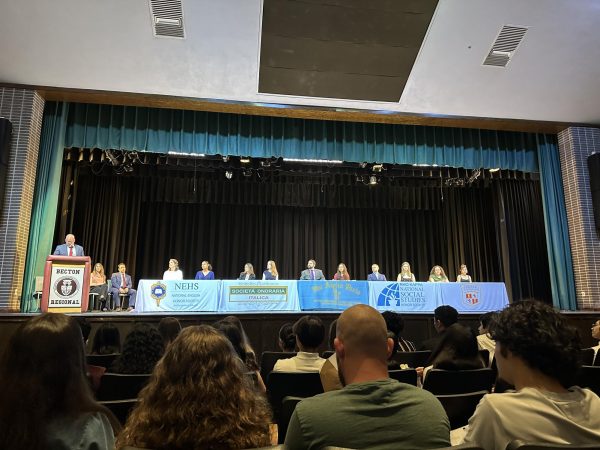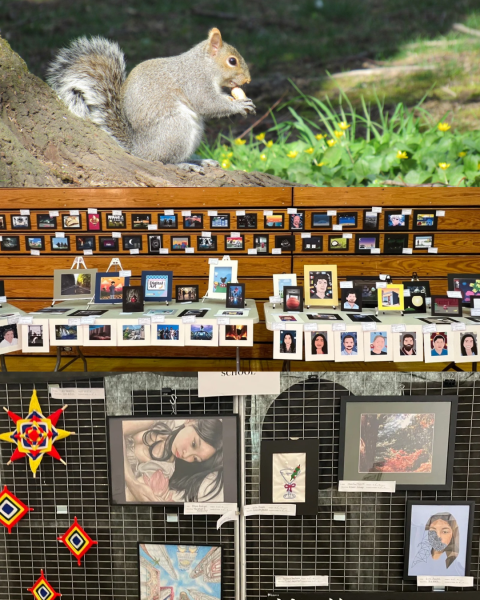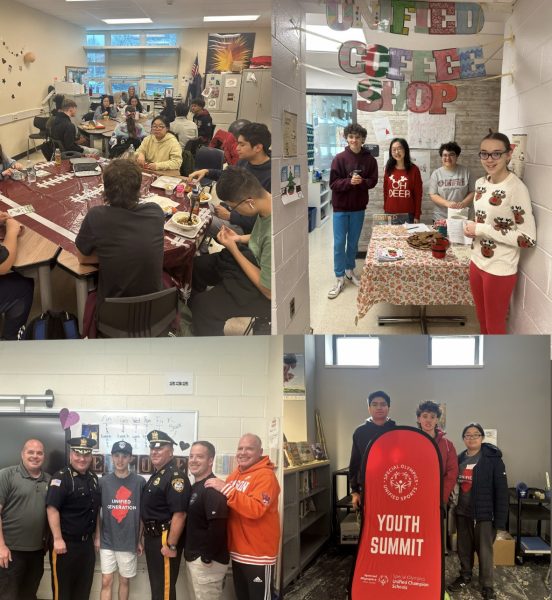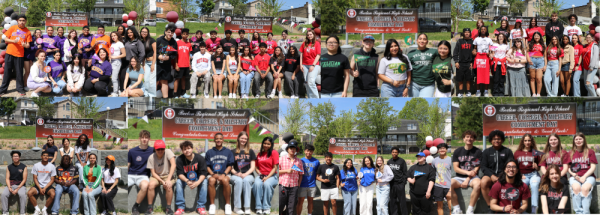Girls Helping Girls members learn to recognize dating abuse
Ms. April Rivkin, an Alternatives to Domestic Violence Community Educator and employee of the Bergen County Department of Human Services, informed Girls Helping Girls members about teen dating violence at their December meeting.
The goal of the meeting was to teach young girls about the different forms of dating violence and how to recognize them when a relationship may take a turn for the worse.
“I think it’s important that young people are aware of how to make healthy relationships,” Ms. Rivkin said. “It’s important for now and important for life.”
During the meeting, the guest speaker informed the audience that one in three teenagers in the United States are victims of dating violence, which comes out to approximately 1.5 million people.
The club members were taught about the four different types of abuse, which include physical, verbal, sexual and emotional. Examples of physical abuse are hitting, slapping, punching, etc., and verbal abuse includes yelling, swearing, cursing and name-calling. Sexual abuse is non-consensual, unwanted, or forced touching by one person upon another. This type of abuse also includes sexual harassment, assault and threats. The speaker discussed the ways that a couple can help prevent sexual abuse, which is to take time to get to know the person that you are dating before making any significant decisions, discussing consent and boundaries and reading body language that reveals if someone may or may not want to be touched a certain way. Ms. Rivkin elaborated that when in doubt, silence always means ‘no’. Last but certainly not least, examples of emotional abuse are threats to one’s friends or family, stalking, intimidation and isolating your partner from others.
During the meeting, the club members also learned that there is a cycle of abuse. This cycle can begin with any healthy relationship where there is chemistry and a sense of euphoria. The abuser may use kind words and gestures to make his or her partner feel safe, but then tension and stress may start to build up, which gives the abuser a sense of a loss of power. Eventually, the loss of control erupts into abusive behavior. The Honeymoon Phase then follows, which can include apologies, gifts, making up, but without counseling, the tension may return, build up, erupt and be followed by calmness again.
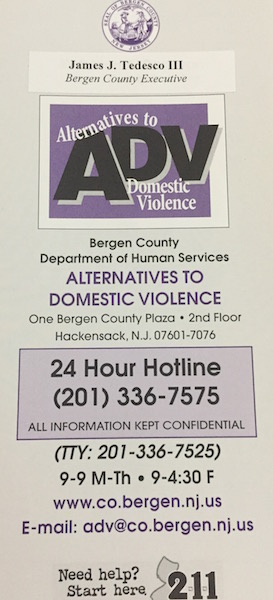
Ms. Rivkin also made clear that although it is not talked about often, boys are also capable of being victims of dating abuse and deserve to be respected the same way as females. She taught members that even though men are stereotyped as masculine, tough and overly sexual “all men have values and boundaries, just like the rest of us.”
Furthermore, the speaker explained that her passion for educating others on this subject developed twelve years ago when she worked as a volunteer in court. After watching many people arrange restraining orders against abusive partners and learning that many adults had multiple unhealthy relationships, she dedicated her time to becoming a public speaker.
“I found the meeting very informative,” said Sophomore Tenzin Tsering.
“It definitely opened my eyes that dating violence is something that we need to be aware of. It’s a matter that people should take seriously,” added Sophomore Salome Siradze.
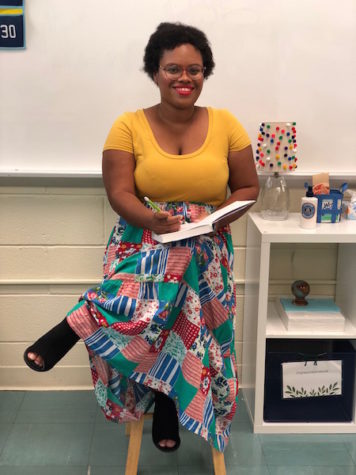
Noelia is thrilled to return to the Cat’s Eye View for her senior year as our editor-in-chief as she completes an independent journalism internship....


